Former Gowanus Brewery, Clinton Hill Warehouse Slated to Become Migrant Shelters
Under emergency contracts relating to the migrant crisis, warehouses in Gowanus and Clinton Hill are being converted into shelters that could potentially operate for years.

The former brewery at 130 3rd Street. Photo by Susan De Vries
Under emergency contracts relating to the migrant crisis, and with little public oversight, warehouses in Gowanus and Clinton Hill are being converted into large homeless shelters that could potentially operate for years.
A long-vacant former brewery building at 130 3rd Street in Gowanus is being converted into a 400-bed homeless shelter by a big-time real estate investor who in the past was accused of harboring squalid building conditions, Department of Buildings permits and city records show. The investor, David Levitan, is a major landlord in the city’s homeless shelter landscape and has faced past scrutiny over the upkeep of his buildings and his business practices, a 2021 New York Times investigation exposed.
The former factory on the corner of 3rd and Bond streets, zoned for manufacturing use, was included in a list of Gowanus buildings that locals sought to landmark in 2018, and nearby residents are now raising questions about how Levitan’s conversion has been allowed with little community consultation.
“This is a men’s only shelter, trying to slide in as a migrant shelter, but to be permanently fixed as a homeless shelter without normal protocol,” a neighbor told Brownstoner. “This is a classic case of bait and switch: With the migrant and homeless crisis looming, they obtained temporary emergency shelter approval and then parlayed that into a nine-year lease for a hugely profitable business. Converting a 70,000-square-foot manufacturing building into a residential shelter for less than $20 per square foot is unthinkable!”
As of this month, Mayor Adams can no longer issue emergency contracts outside the city’s usual competitive bid process, while medical services provider DocGo is being investigated for serving spoiled meals to migrants, among other allegations, under a $432 million no-bid contract. The state also recently claimed the city has ignored its offer of a variety of sites in the five boroughs such as convention centers, armories, racetracks, and college dorms that could sleep as many as 3,000 people. Almost 70,000 migrants are currently being housed here, according to the city.
A DOB permit to “convert existing commercial building into a transient lodging house with 16 sleeping room accomodations [sic] for a total of 400 beds and accessory offices,” was issued by the agency for 130 3rd Street in November. Brownstoner saw no signs of activity at the building during a recent visit, but in recent days workers have been visible inside putting up drywall partitions, according to the neighbor.
A DOB spokesperson told Brownstoner the proposed 5A and 5B use (which is for transient accommodations and hotels) is allowed in M1 districts. The DOB permit says the shelter will be “operated by a philanthropic or nonprofit institution, sponsored by DHS” and when it is no longer operated for that use the certificate of occupancy will cease.
A NYC Department of Homeless Services spokesperson confirmed home healthcare provider BHRAGS Home Care Corp. will run operations at 130 3rd Street and that the site will open in early 2024. The spokesperson said the shelter will include 400 beds for single, recently arrived asylum seekers and will offer wraparound services, including case management, connection to city resources and health services, and community-based referrals.
According to a letter from Housing Preservation and Development filed as part of the permit application, BHRAGS Home Care Corp. has taken out a nine-year lease with the building owner. The DHS spokesperson did not respond to a question about how much the city will pay the nonprofit to operate the site.
“Since last spring, more than 150,100 asylum seekers have arrived in New York City in need of shelter. Over 67,000 remain in the city’s care while hundreds more arrive each day, pushing our shelter system well past its breaking point,” the rep said.
“As we continue to call on our federal and state partners for additional support while using every tool at our disposal to address this humanitarian crisis, additional capacity is desperately needed, and we need every community to come together as we work to rapidly open new sites across all five boroughs to meet the ever-increasing and urgent need for shelter.”
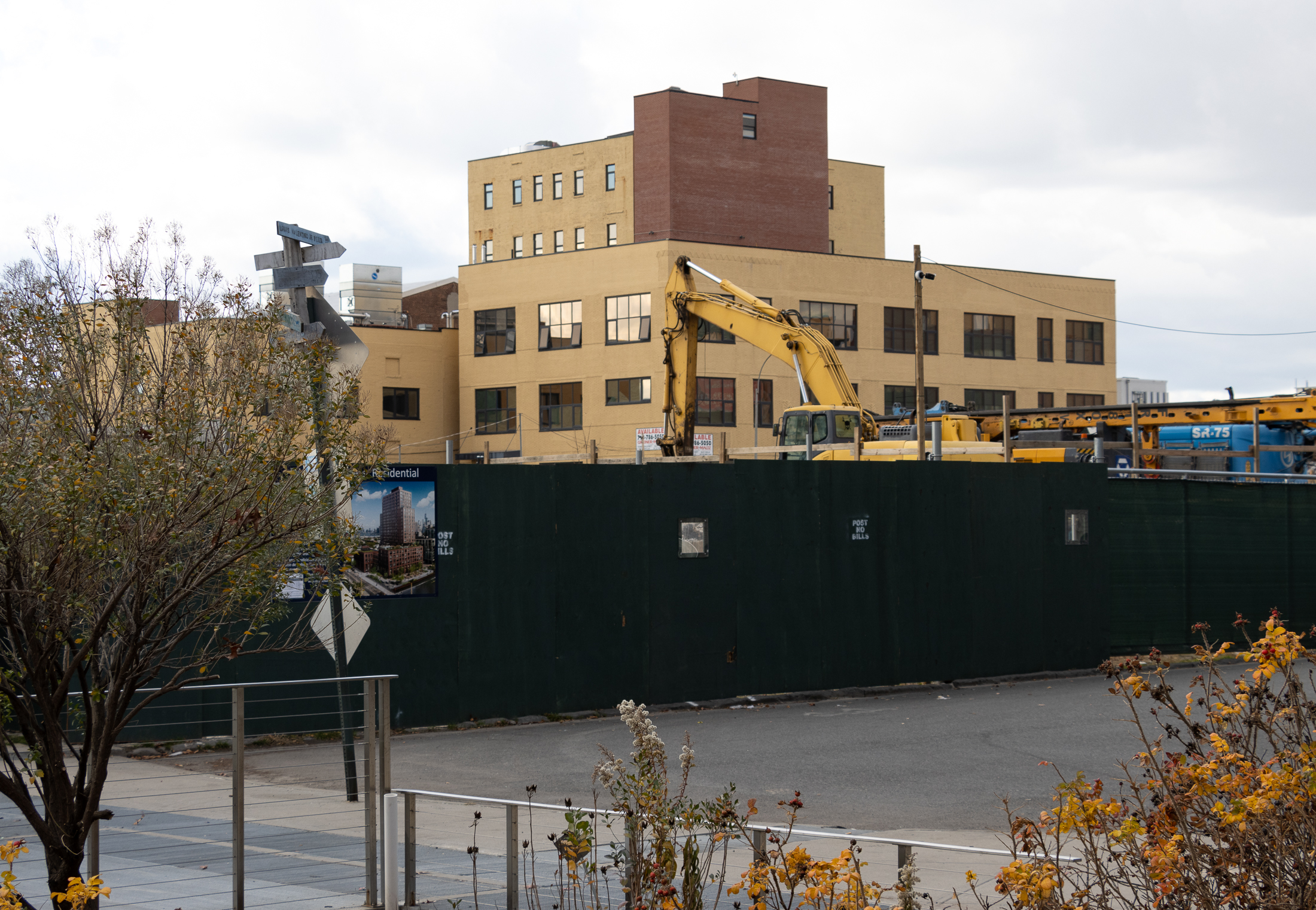
The spokesperson said BHRAGS will provide 24 hour-a-day on-site security and operate a 24-hour open line for the community to address any issues that may arise. The rep added the agency is committed to ongoing community engagement on the emergency shelter site, and said local elected officials and community representatives were notified about the shelter months in advance.
In September, 130 Third Street Owner LLC, with Yosef Rabinowitz as signatory, bought the building for $19.5 million from the longtime owner HFK Inc. The LLC shares an address with Levitan’s Liberty One Group, and Yosef (also known as Jojo) Rabinowitz is a parter at the company. Levitan is listed as the building’s owner in documents included in the DOB permit application.
Levitan and Rabinowitz have faced a litany of complaints from shelter residents and tenants over the years, and Levitan was on the public advocate’s Worst Landlord Watchlist. Last year, the city abruptly canceled a planned shelter owned by Levitan in the Bronx after facing significant community pushback, The City reported.
This year, Levitan has been taken to court twice by Housing Preservation and Development for failing to provide hot water to tenants in two separate buildings, and is involved in at least two cases where parents accuse Liberty One of being involved in buildings where their children suffered lead poisoning, according to court documents.
BHRAGS Home Care Corp., which was getting $24 million from the city in mid-2023 to run five shelters, has also faced controversy over its services. In March, The City reported that spoiled food served at a BHRAGS run shelter in Sheepshead Bay made residents sick on multiple occasions and had sent children and adults to the emergency room.
The DHS spokesperson told Brownstoner the situation was an anomaly and immediately remedied. The rep added protecting the health and safety of residents and addressing issues that arise with the fast shelter rollouts are top priorities.
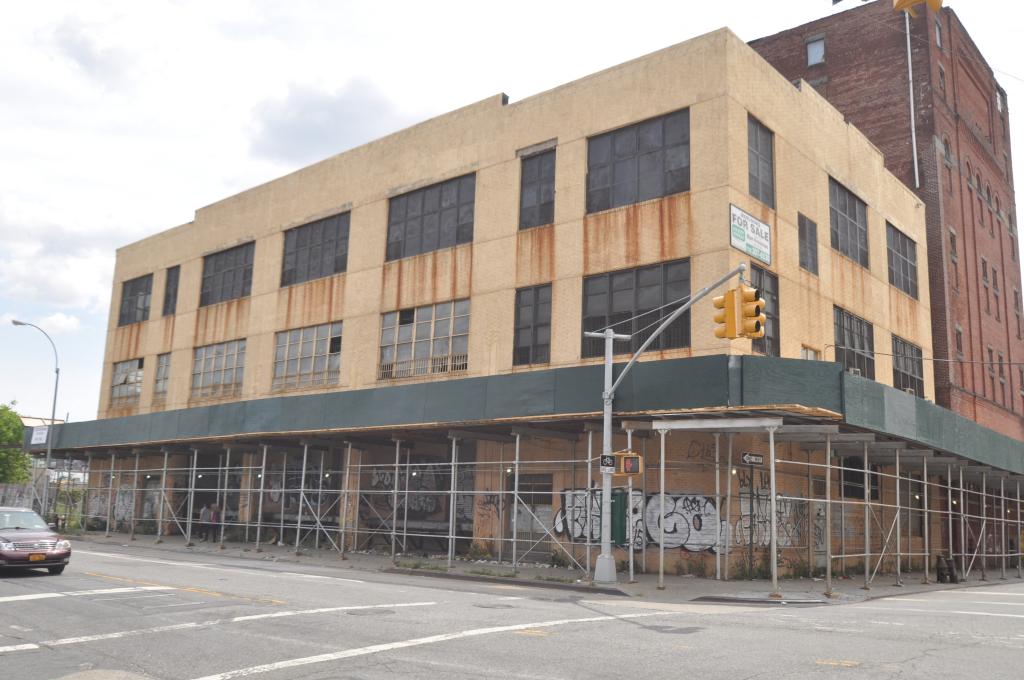
The corner building steps from the Gowanus Canal was originally two separate buildings, with the previous landlord connecting 130 3rd and 409 Bond streets in 2018. Designed by Herman Steinmann and constructed in 1906, 409 Bond Street was the first of the two buildings to rise on the site and it opened in the spring of 1907 as part of Leonhard Michel’s extensive brewery. Ebling Brewery took over the brewing complex and 130 3rd Street was formally opened in August of 1934 as part of Ebling Brewery.
While some sources cite 130 3rd Street as the former New York Vitrified Tile Works, there doesn’t appear to be any historical evidence of this. However, a tile company was located on the next block, between Bond and Hoyt streets.
Both buildings have been painted yellow and had windows replaced, but largely retain their early 20th century styles. Garage doors on the ground floor of 130 3rd Street have been replaced by large glass panels.
In 2002, owner HFK Inc. was told by the Board of Standards and Appeals it couldn’t convert the building and its six-story neighbor at 409 Bond Street into a 48-unit residential loft complex because, at the time, the area was largely industrial. Around 2018, HFK Inc. connected 130 3rd Street and 409 Bond Street with new elevators and stairs, according to DOB permits, and converted the manufacturing space to retail and office. The conversion means Levitan and Rabinowitz have 74,761 square feet to turn into transient housing, and according to the DOB permit they estimate that to cost $1,281,060.
The area was rezoned for residential towers in 2021, and since then a handful of large construction projects have started near the Gowanus Canal.
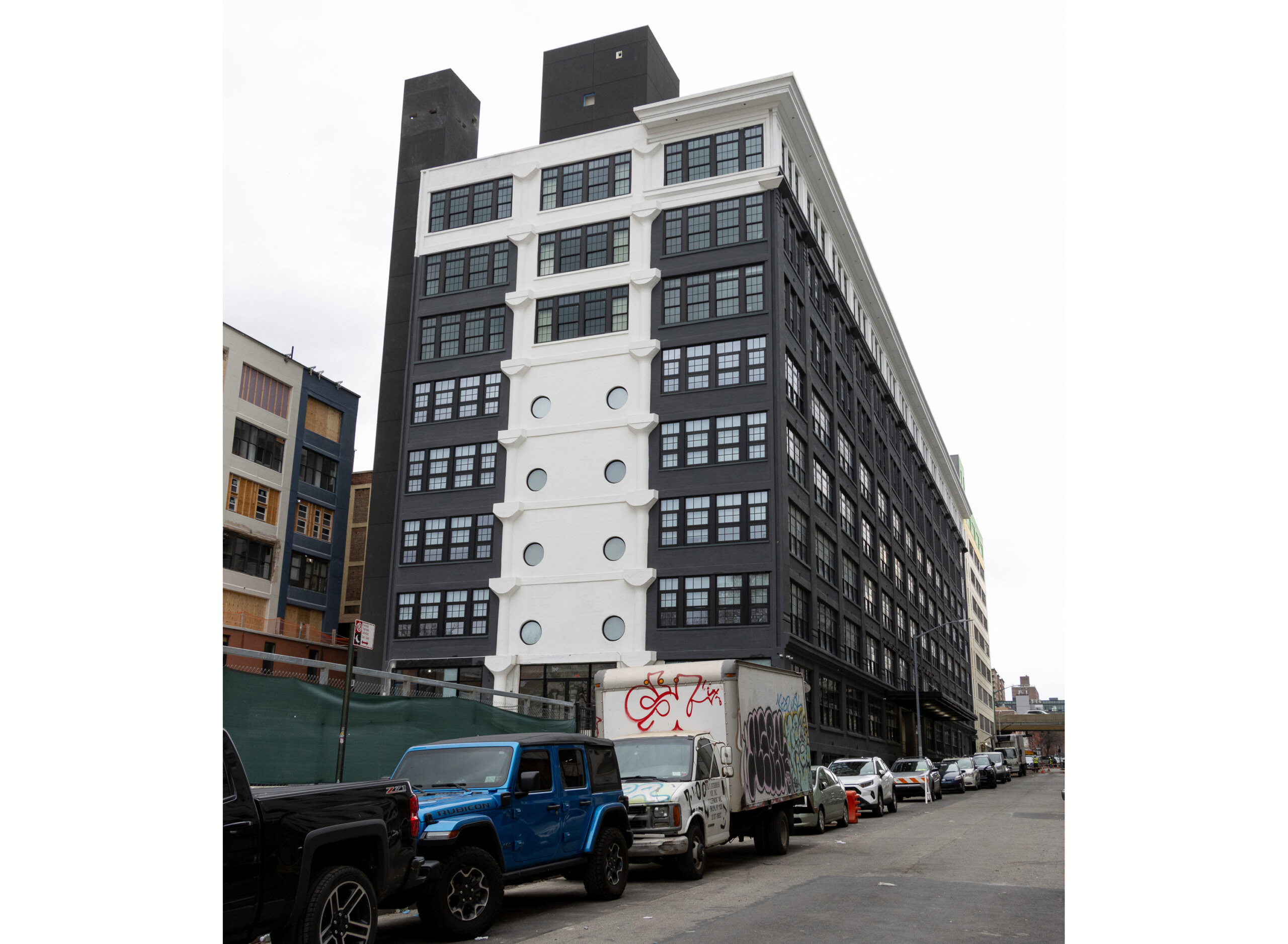
Over in Clinton Hill close to the Navy Yard, a shelter is slated to open in a warehouse that was already in the process of being converted to a “luxury” hotel and office space but does not yet have any certificate of occupancy. New York City’s public hospital system NYC Health + Hospitals has rented the building, located at 29 Ryerson Street, for 24 months to “house the families of migrant asylum seekers,” the organization reported to its board of directors in September. The public benefit corporation is a major player providing services to migrants in the city, Gothamist reported earlier this month. The 29 Ryerson lease runs through September of 2026 for a total rent of $65,514,180.
The owner of the building and landlord is Sela Group, which bought the property under the name Sela Ryerson LLC in 2019 for $55 million. In 2015, the firm submitted an application to convert and expand the existing warehouse to a 12-story hotel with 374 “boutique hotel rooms” including penthouse suites, called Navy Yard Hotel, the company’s website and DOB records show.
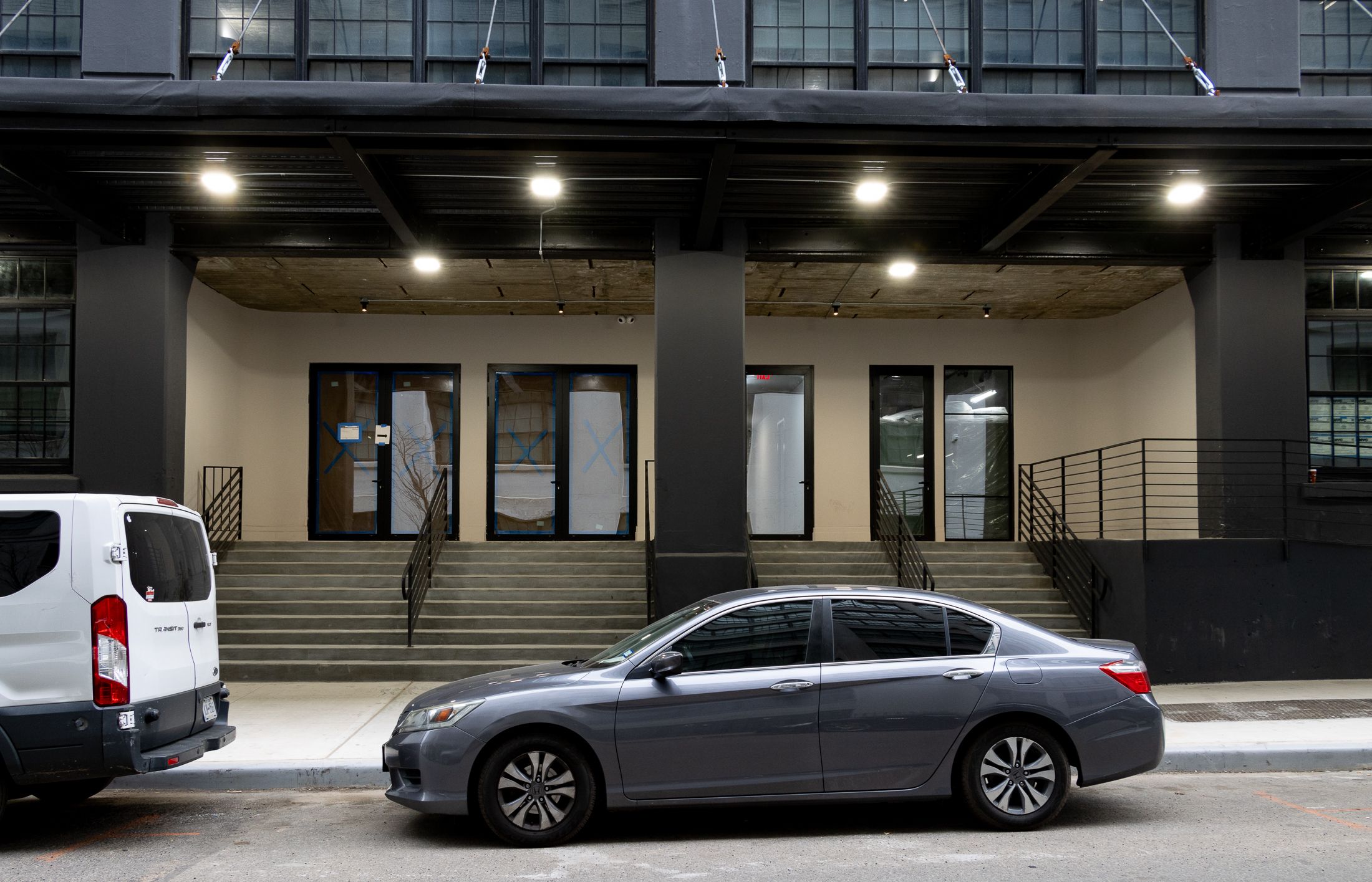
Located in the National Register’s Wallabout Industrial Historic District, the reinforced concrete building was designed by Herman Fougner for the Mergenthaler Linotype Company and opened in 1920. The upper floors housed offices while the lower floors were for factory use.
Steps away, in another former Linotype building at 47 Hall Street, is one of the city’s largest migrant shelters, which opened in July with more than 2,000 residents, according to The City. Owner RXR previously intended to turn it into luxury office space.
While demand for manufacturing and office space in Brooklyn is down, and the cost of housing at an historic high, the city has spent about $1.73 billion on 300 emergency contracts in the last year or so, according to a recent report from the comptroller.
“So, when everyone wonders what will become of all the New York City buildings that used to house American consumer brand companies and then WeWork, it looks like they will all become refugee shelters,” a reader familiar with 29 Ryerson told Brownstoner, half joking. “If you figure about 100 square feet per person, and 100,000 refugees, this should absorb about 10 million square feet. I am not sure if this is a dystopian vision or real possibility!”
[Photos by Susan De Vries unless otherwise noted]
Related Stories
- Mayor: Migrant Families With Children Will Be Booted From Shelters After 60 Days
- Migrant Families Leave Controversial Floyd Bennett Field Shelter Minutes After Walking In
- CB2 Hears Plans for New Homeless Shelter Slated for Downtown Brooklyn
Email tips@brownstoner.com with further comments, questions or tips. Follow Brownstoner on Twitter and Instagram, and like us on Facebook.

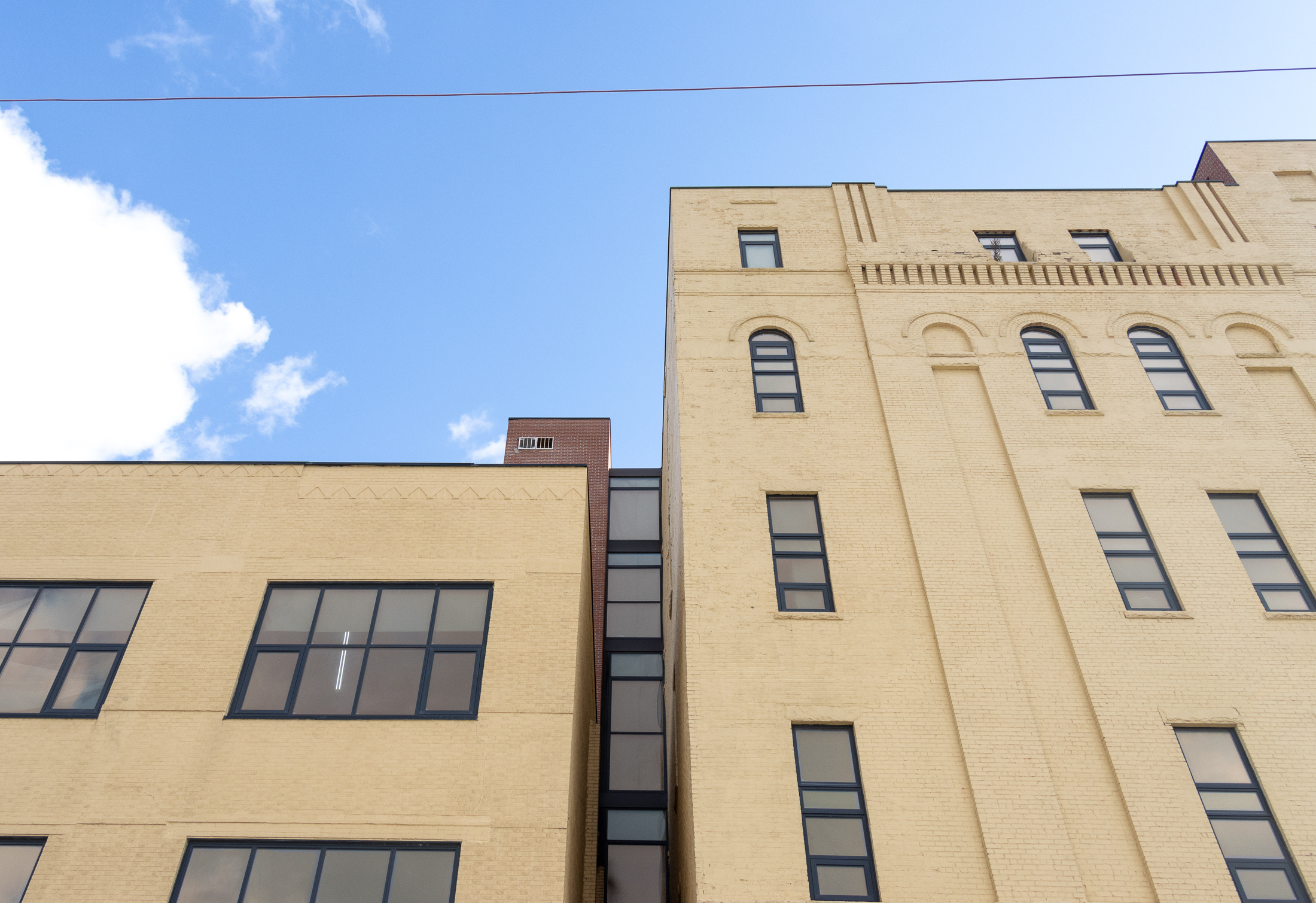
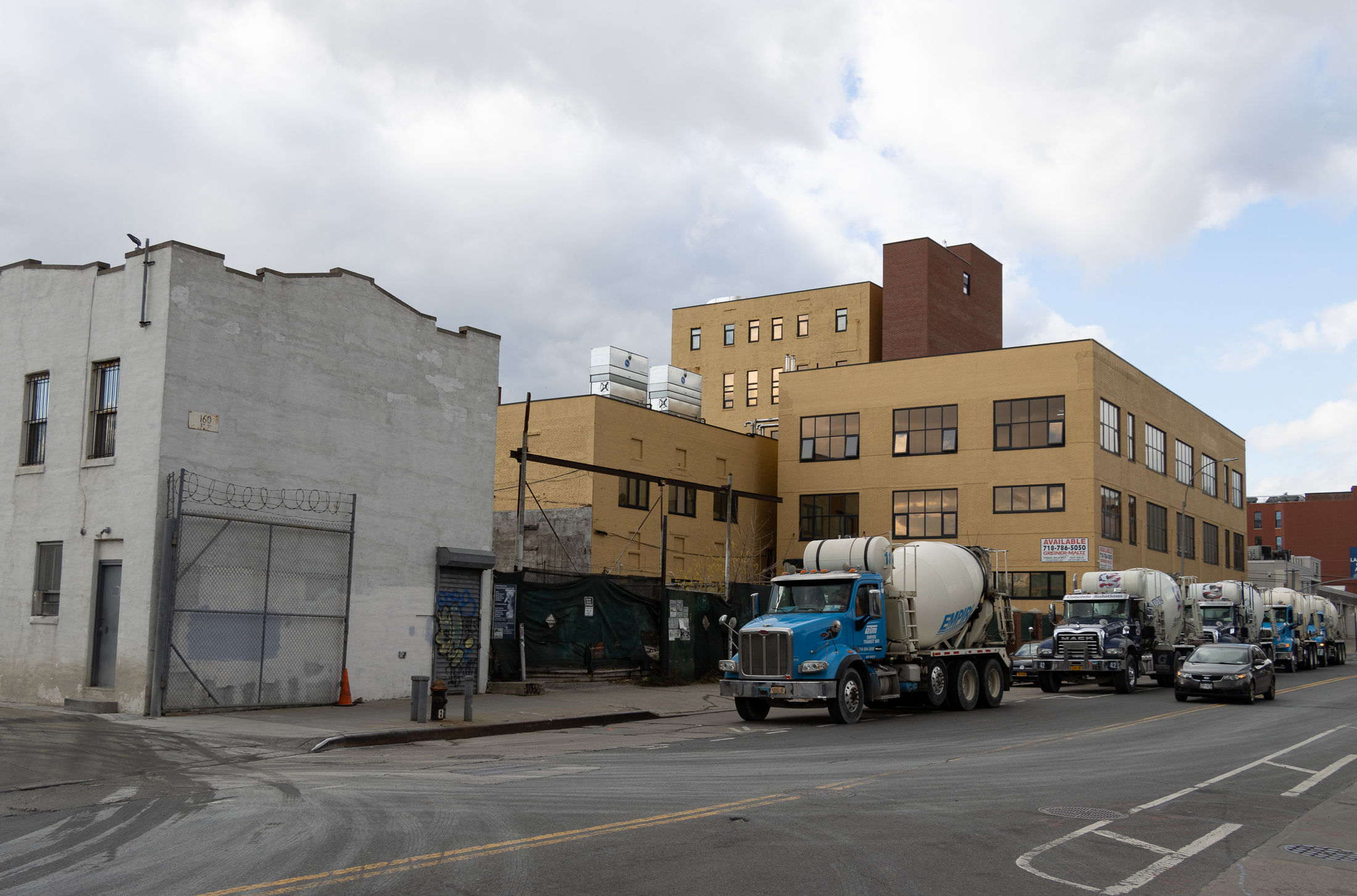
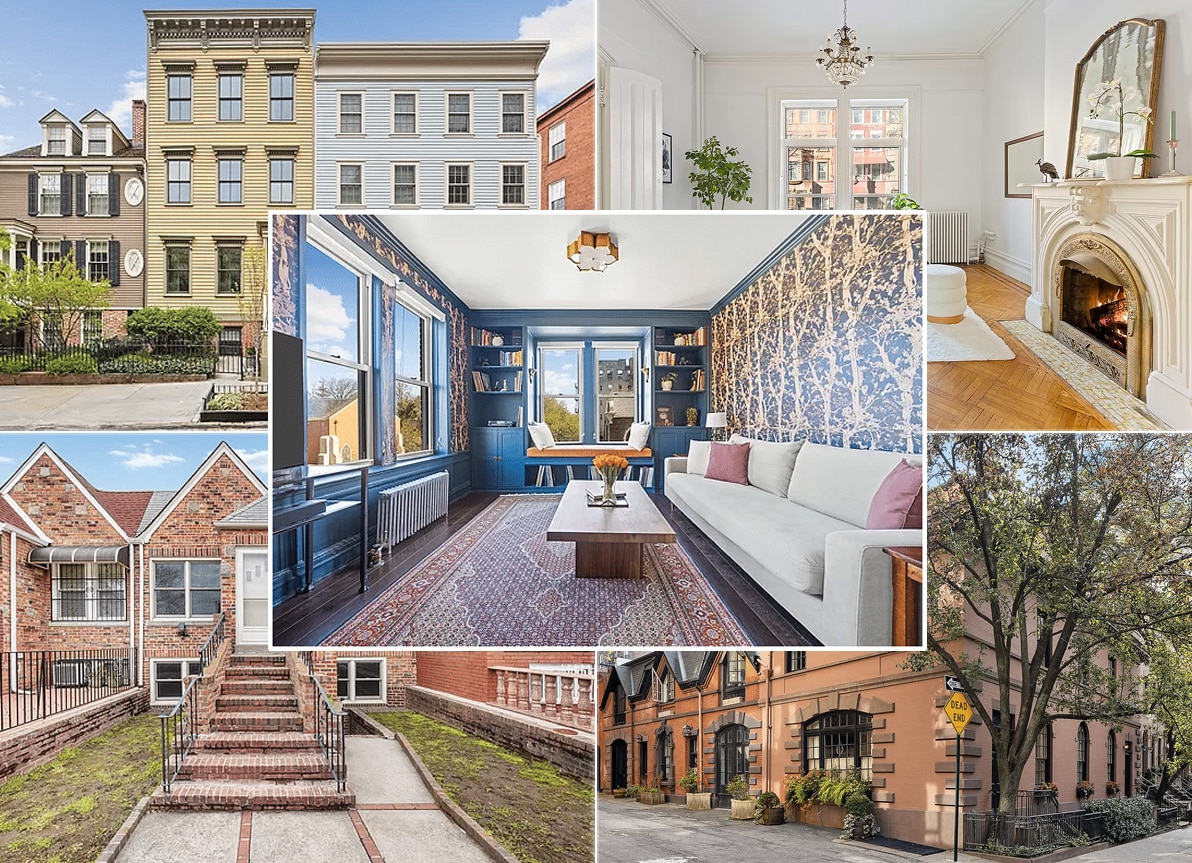
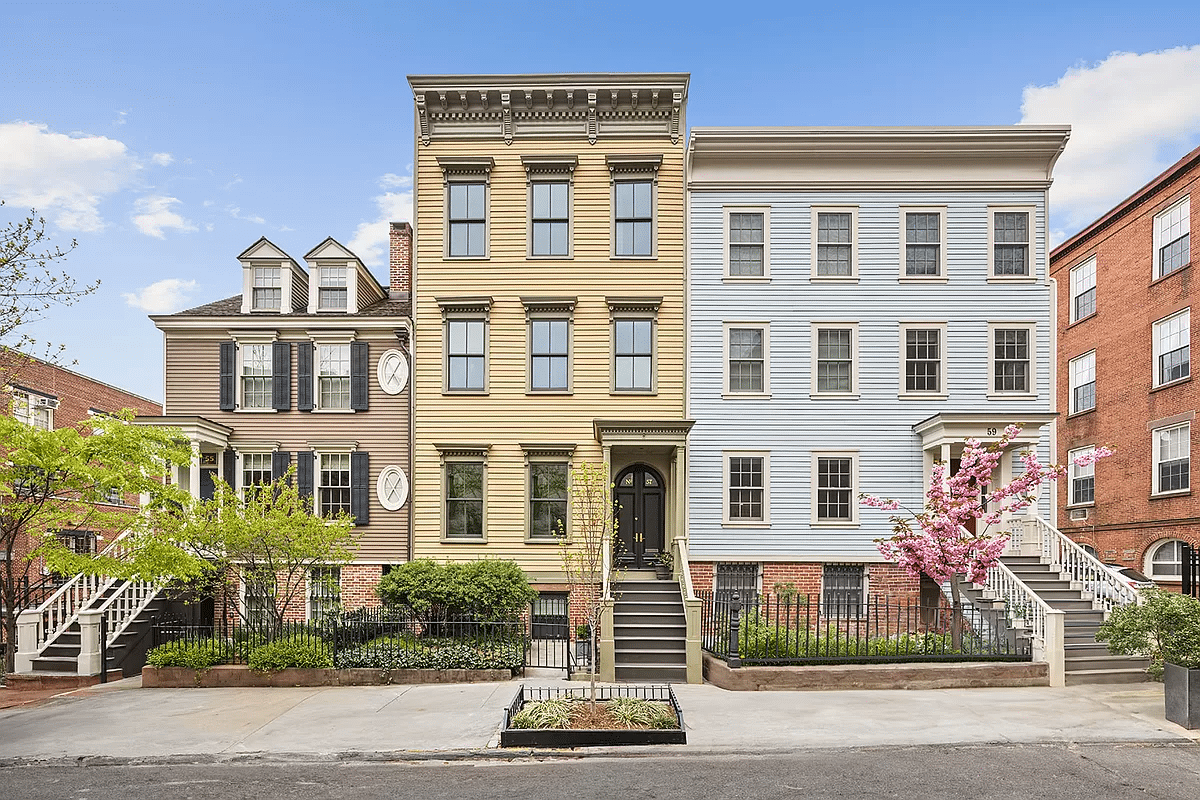
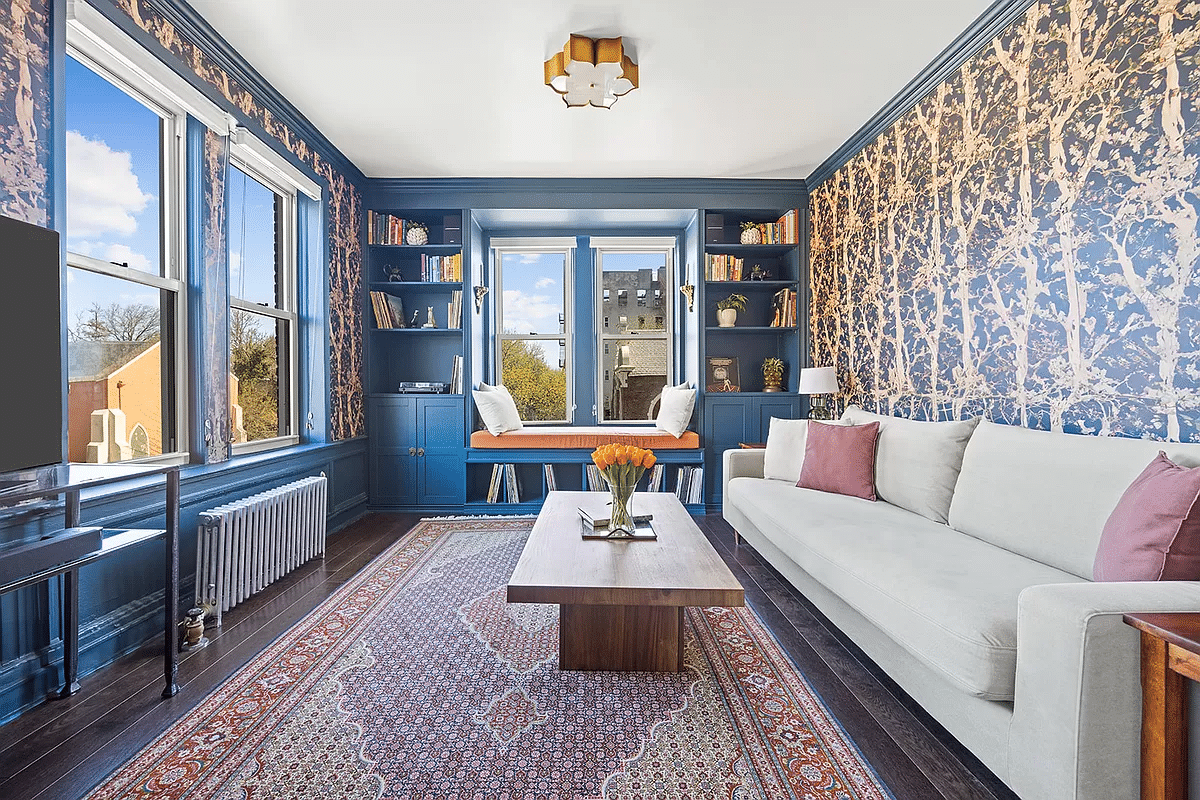
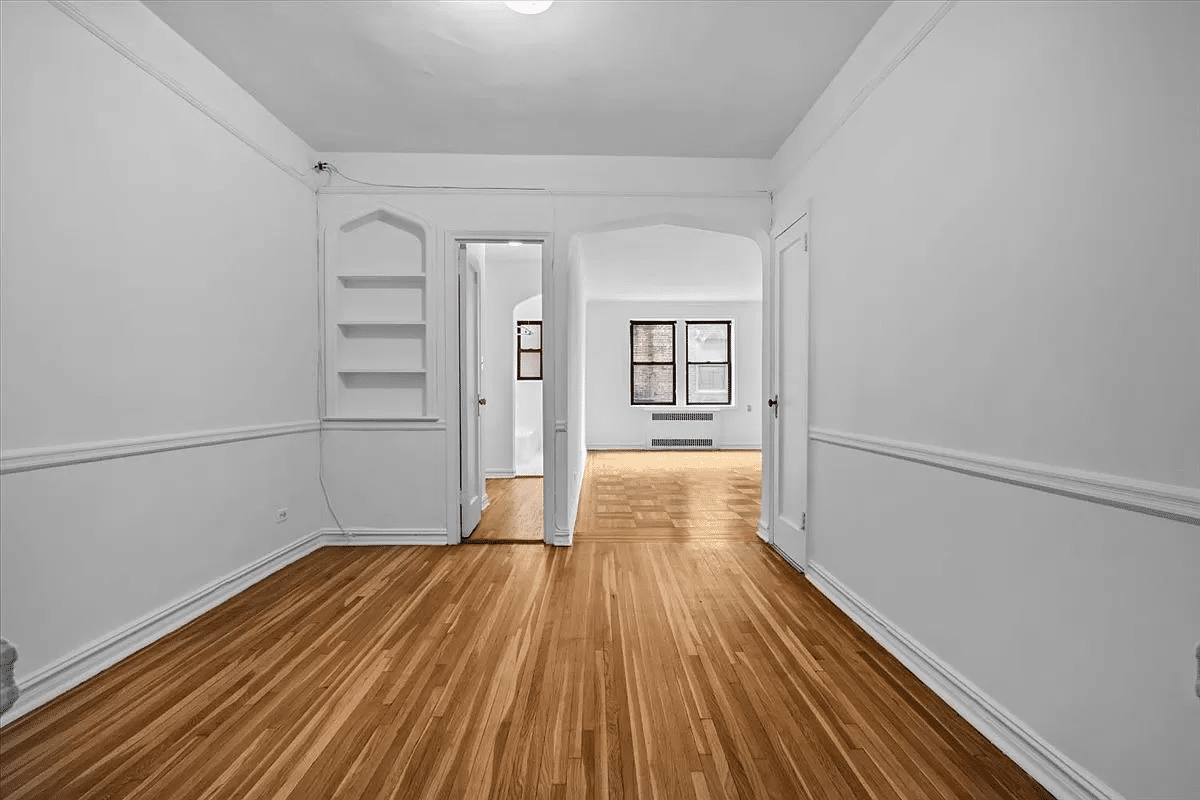




What's Your Take? Leave a Comment